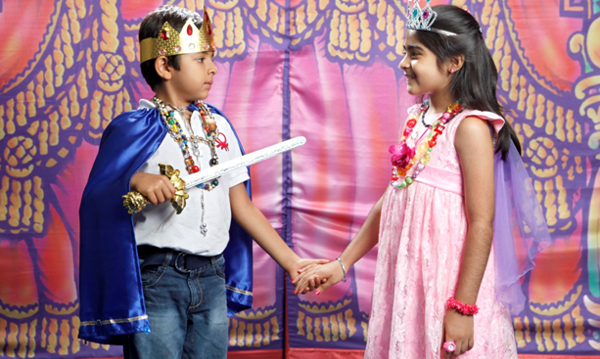Youth Empowerment Arts (YEA)
Youth Empowerment through Arts (YEA!)
Theatre Arts and Creative Writing
- Age : 6 – 12 Years
- Duration : 12 Weeks
- Session : 120 minutes (Once a Week)
arrow

Overview : A Performance Arts program which guides its students into becoming the whole complete beings they were meant to be.
YEA’s theatre arts program, will through structured exploration of scene work, improvisation, acting technique and theatre games, give students an opportunity for self-expression. This twelve-week theater arts program provides for imaginative experiences, developing the whole person – skills, physically, intellectually, and emotionally.
The students will develop language and communication abilities, problem solving skills and creativity, promoting high standards of behavior.
Three basic strands–perception, creative expression, performance, provide broad, unifying structures for organizing knowledge and skills students are expected to acquire. Students will increase their understanding of self and others and develop clear ideas about the world. Through a variety of theatrical experiences, students communicate in a fun forum, make artistic choices, solve problems, build positive self-concepts, and relate interpersonally.
Goals:
- To encourage intellectual curiosity so as to broaden Capabilities for critical thinking
- To create a climate conducive to logical, independent thinking and expression
- To provide steps releasing inhibitions
- To promote a positive self-image and to instill a feeling of confidence and self-worth in each student
- To provide an outlet for creativity and self-expression
- To develop in each student self-discipline, self-control, a sense of responsibility, and an understanding of self and individuality.
- To prepare the student to function successfully in the modern world
The student develops concepts about self, human relationships, and the environment, using elements of out of the box improvisations and conventions of theatre.
The student is expected to:
- Improvise, using sensory recall.
- Apply preparation and warm-up techniques.
- Create expressive movement and pantomime to define space and characters.
- Express thoughts and feelings, using effective voice and diction.
- Compare dramatic performances to life.
- Create setting, character, and plot in improvised scenes.
- Demonstrate safe use of the voice and body.
- Analyze life interactions, choices, and responses to describe character motivation.
- Portray characters through familiar movements and dialogue.
- Create, improvise, and record individually and collaboratively characters, setting, dialogue, and actions that reflect a beginning (exposition), middle (climax), and ending (denouement, resolution).




